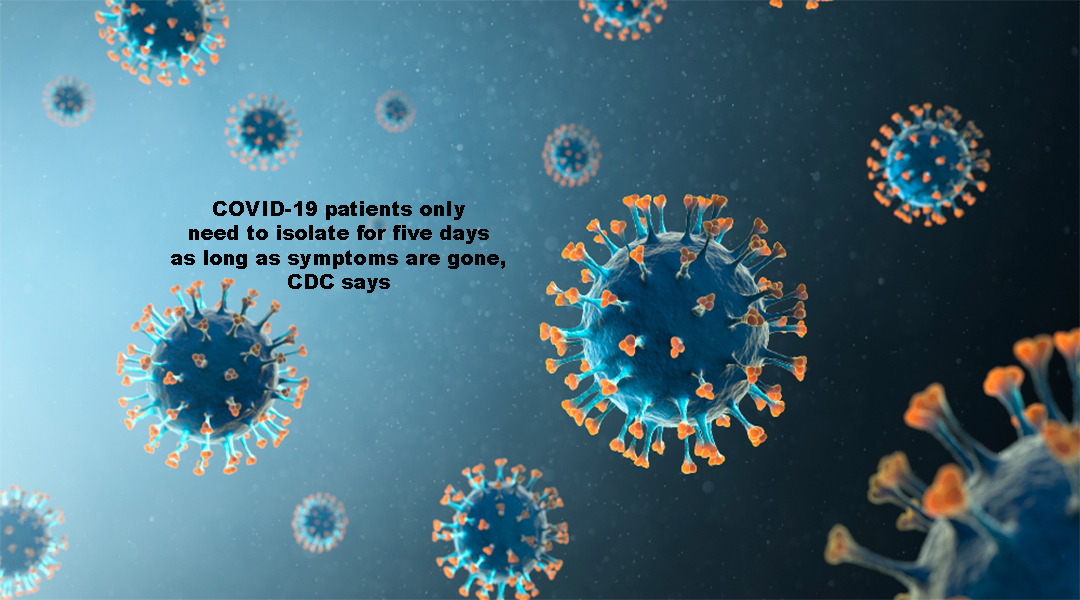COVID-19 patients only need to isolate for five days as long as symptoms are gone, CDC says. Individuals who test positive for COVID-19 just need to disengage for five days as long as their side effects have halted, the Centers for Disease Control and Prevention said Monday.

The change to disengagement rules from 10 days to five depends on information showing individuals with COVID-19 are probably going to be infectious to others during a couple of days previously, then after the fact they begin showing indications, the organization said in an assertion.
The verge also reported that in the wake of leaving seclusion, individuals should wear a veil around others for five extra days, the CDC said.
COVID-19 patients only need to isolate for five days as long as symptoms are gone, CDC says
The CDC likewise said Monday that individuals who haven’t gotten a supporter portion of a COVID-19 immunization, however, accepted their second portion of an mRNA antibody a half year prior, or who got a Johnson and Johnson immunization two months prior, should isolate for five days assuming they’re presented to somebody with COVID-19.
That is a change from past rules, which said individuals who are completely immunized don’t have to isolation assuming they have openness to somebody wiped out with the illness.
The present new rules from the CDC for the overall population in the United States do exclude a proposal to step through an examination toward the finish of the five-day disconnection period.
CDC Faced Pressure from Various Industries
The exceptionally infectious omicron variation is driving uncommon floods in COVID-19 cases, and in many spots, more individuals are trying positive for the infection every day than any time in recent memory.
Thus, the CDC confronted tension from different enterprises, including carriers, to abbreviate the segregation time frame to decrease staffing deficiencies from individuals testing positive and missing ten days of works.
General wellbeing specialists say a more limited separation period is upheld by research on the infection. Nonetheless, individuals ought to be genuinely recuperated on the off chance that they will get back to regular exercises.
“What I would rather not witness is for this to be blamed so as to drive individuals to return while they are unwell,” Megan Ranney, a crisis doctor and a partner senior member at the School of Public Health at Brown University, told The New York Times.
